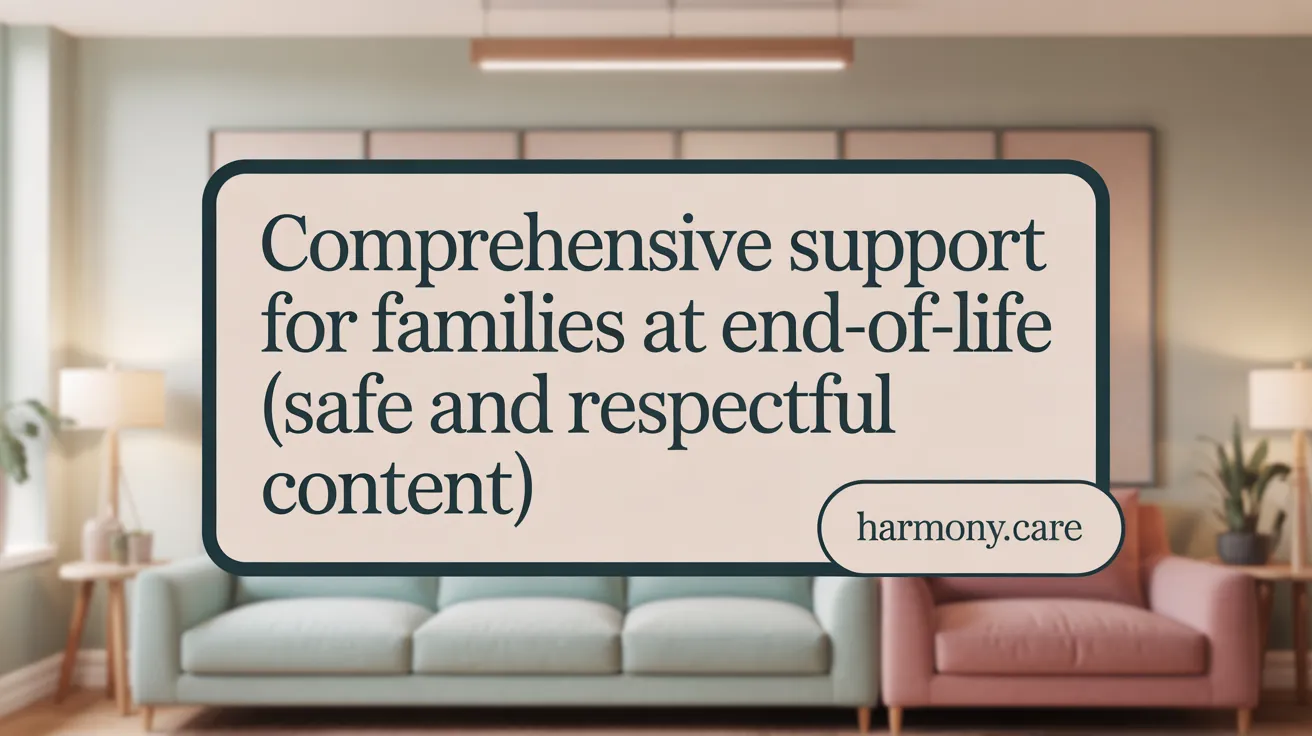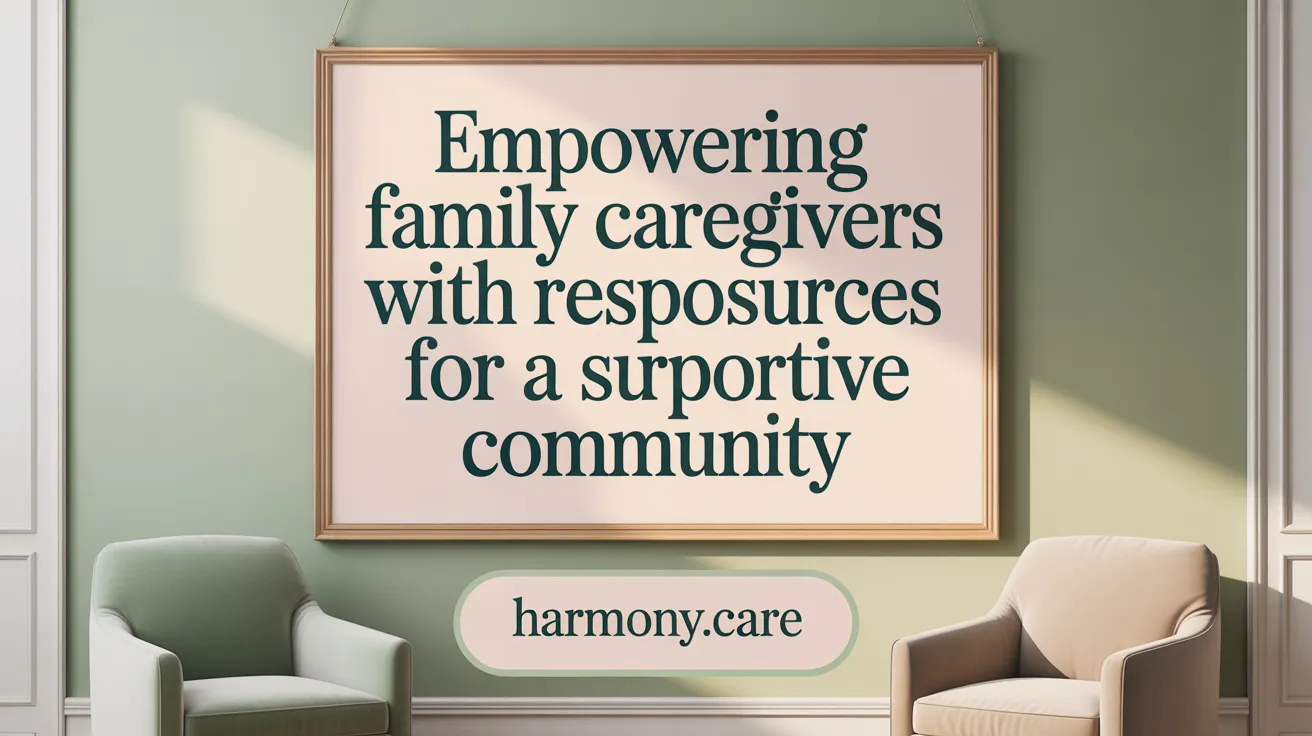Understanding Hospice's Holistic Family Support
Hospice care extends far beyond managing a patient's physical symptoms. It embodies a compassionate, interdisciplinary approach dedicated to supporting the entire family unit through the emotional, spiritual, and practical challenges of end-of-life care. From the first call to well beyond the passing of a loved one, hospice teams provide continuous, tailored assistance that fosters dignity, connection, and healing for patients and their families alike.
The Multidisciplinary Hospice Team: Roles in Supporting Families

What types of support do hospice care teams commonly provide to families?
Hospice care teams offer a comprehensive range of support tailored to the needs of both patients and their families. This support includes managing physical symptoms like pain and discomfort, ensuring the patient remains comfortable. Beyond physical care, these teams provide emotional, social, and spiritual assistance, helping families navigate complex feelings such as grief, fear, and love.
The team is made up of various professionals working together to deliver holistic care. Physicians and nurses oversee medical treatment, symptom control, and medication management. Social workers offer emotional counseling and help address social or financial issues that may arise. Chaplains provide spiritual support aligned with the family's beliefs, offering comfort and solace. Trained volunteers and aides assist with daily activities and companionship, reducing caregiver burden.
In addition to direct care, hospice teams focus on education, guiding families on caregiving techniques, decision-making, and end-of-life preparations. They also offer support after death through grief counseling, memorial activities, and ongoing emotional reassurance. Practical help, such as personal care assistance and coordination of resources, ensures dignity for the patient while alleviating stress for family caregivers.
This collaborative effort makes the transition at end-of-life more peaceful, guided by compassion, understanding, and respect for individual preferences, making families feel supported throughout this challenging time.
Emotional, Spiritual, and Practical Support Services for Families

How do hospice teams support families during end-of-life care?
Hospice teams provide a range of caring services to support families during this difficult time. Their approach addresses emotional, spiritual, and practical needs, helping families navigate the complex journey of end-of-life care.
Emotionally, families often experience feelings of love, guilt, fear, or grief. Hospice teams offer counseling, support groups, and one-on-one guidance to help families process these emotions and find comfort. They create a space for sharing memories and expressing feelings, fostering healing and understanding.
Spiritual support is tailored to the beliefs of each family. Chaplains and spiritual counselors listen, offer comfort, and provide faith-based or non-religious guidance as preferred. This support helps families find inner peace or spiritual closure, no matter their faith background.
Practical help forms a vital part of hospice services. Families receive education on caregiving tasks, medication management, and home safety. The team also coordinates with community resources and supplies necessary medical equipment at no cost. For caregivers needing respite, temporary inpatient care or home-based relief options are available, giving them necessary breaks.
After the loss, hospice services continue to support families through bereavement programs. These include counseling, support groups, memorial services, and educational materials to help families cope with grief over time.
Overall, hospice teams help families feel supported, informed, and connected, making the end-of-life process less overwhelming and more meaningful.
What types of emotional and spiritual support are available?
Hospice care offers compassionate emotional support with counseling, support groups, and family therapy. Spiritual care is provided regardless of faith, including personalized guidance from chaplains that respect each family’s beliefs. These services are designed to bring comfort, foster acceptance, and help families find peace during a challenging time.
How does hospice provide practical assistance?
Families benefit from educational resources that demystify the medical aspects of end-of-life care. They learn essential caregiving skills, safety tips, and how to manage symptoms. The team arranges necessary medical equipment, medication, and home health support to ensure the patient's comfort. Respite care allows family caregivers to take breaks, reducing stress and exhaustion.
What are memory projects and their significance?
To preserve the patient’s legacy, hospice teams may assist families in creating memory books, videos, or other projects. These meaningful keepsakes offer comfort, celebrate the patient's life, and support emotional healing.
| Service Type | Description | Benefits |
|---|---|---|
| Emotional Counseling | One-on-one and group support | Helps process grief, reduce feelings of isolation |
| Spiritual Care | Faith-based or secular guidance | Provides comfort, spiritual closure |
| Caregiving Education | Skills training and resources | Empowers families, enhances caregiving confidence |
| Respite Care | Temporary relief options | Prevents burnout, supports caregiver health |
| Memory Projects | Legacy creation activities | Preserves memories, fosters healing |
Hospice care’s holistic approach embraces the entire family, ensuring support services adapt to individual needs and foster healing, hope, and dignity at the final stage of life.
Family-Centered Approaches and Communication in Hospice Care

Why is it important for hospices to support the entire family during end-of-life care?
Supporting the whole family in hospice care is essential because illness impacts more than just the patient. It touches the emotional, social, and spiritual lives of family members, from siblings to caregivers. Hospice teams recognize this interconnectedness and adopt a holistic approach to care.
Hospice services encompass practical help like respite care, counseling, and assistance with daily tasks, alongside emotional and psychological support. This includes family counseling, sibling groups, and bereavement services that prepare the family emotionally and practically for loss.
Focusing on the entire family’s well-being helps maintain relationships, foster resilience, and uphold dignity through the caregiving process. It encourages family members to support each other, express feelings, and process grief healthily.
Ultimately, caring for the family as a whole creates a comforting environment that promotes healing, adjustment, and continued connection, empowering families through the challenging journey of end-of-life care.
Respite Care and Educational Resources: Supporting Family Caregivers

How do hospice teams support families during end-of-life care?
Hospice teams play a crucial role in helping families through the challenging journey of end-of-life care. They provide a holistic mix of emotional, spiritual, and practical support tailored to each family's needs. This includes offering grief counseling, spiritual guidance from chaplains, and facilitating support groups where families can share their experiences and find comfort.
To ensure families are well-prepared, hospice teams educate them about the progression of the illness, symptom management, and caregiving tasks. Skilled professionals such as nurses, social workers, aides, and chaplains help families handle daily care activities, manage medications, and recognize signs of relief or distress in the patient. This comprehensive approach helps families feel more confident and less overwhelmed.
An essential aspect of support is respite care, which allows family caregivers to take necessary breaks. Respite can be arranged as short-term stays at care facilities or through home-based services, helping to prevent caregiver burnout. After the loved one passes, the support continues through bereavement services. These include counseling, memorial activities, and resources designed to help families process grief, adjust to life after loss, and find ongoing comfort.
In sum, hospice teams are dedicated to supporting the entire family, addressing emotional, spiritual, and practical needs throughout the end-of-life process and beyond.
Bereavement Support: Helping Families Navigate Grief and Healing

How do hospice teams support families during end-of-life care?
Hospice teams play a vital role in guiding families through the emotional and practical challenges of end-of-life care. They provide a blend of emotional, spiritual, and practical assistance tailored to each family's unique needs. This includes grief counseling, support groups, and spiritual guidance to help families process their feelings.
Education is also a core component; hospice professionals teach families about the progression of illness, symptom management, and caregiving tasks. Skilled staff, including nurses, aides, social workers, and chaplains, work together to ensure the patient’s comfort and dignity while supporting the family members.
Respite care is offered to give family caregivers a needed break, reducing stress and preventing burnout. This service temporarily relieves family members by caring for the patient in a healthcare setting or at home.
Once a loved one passes, hospice continues its support through ongoing bereavement programs. These include grief counseling, support groups, memorial services, and remembrance activities. Such services acknowledge that everyone grieves in their own way and at their own pace, providing a safe and compassionate environment for healing.
By addressing emotional, spiritual, and practical aspects of loss, hospice teams ensure families feel supported and understood during one of life’s most difficult times.
Support services offered through hospice include:
| Service Type | Description | Additional Details |
|---|---|---|
| Grief counseling | Individual and family therapy to process emotions | Tailored to individual needs |
| Support groups | Shared experiences to foster community | Available for different age groups |
| Memorial services | Honoring loved ones with ceremonies | Can include personalized tributes |
| Remembrance activities | Initiatives like memory books and anniversary remembrances | Help preserve legacy |
| Continuing education | Resources about grief, coping, and healing | Helps families adjust over time |
Understanding the individual grief journeys
Every family’s response to loss is unique. Hospice services recognize this by offering personalized support pathways. Some grieve openly, while others process their loss privately. Family counselors help families navigate these different reactions, acknowledging feelings of love, guilt, fear, or unresolved issues.
Through ongoing support, families learn to honor their loved ones and adapt to life after loss. Hospice's commitment is to create a space for sharing, healing, and growth, ensuring no one faces grief alone.
The Lasting Impact of Hospice Family Support
Hospice care’s holistic approach ensures that families receive compassionate, comprehensive support through every step of the end-of-life journey. By addressing emotional, spiritual, and practical needs with skilled communication, teamwork, and personalized care plans, hospice teams empower families to find comfort, dignity, and connection during an incredibly difficult time. Their commitment extends beyond the patient’s passing, offering continued bereavement guidance that nurtures healing and resilience. Ultimately, hospice care transforms what could be a time of isolation and stress into a shared journey embraced with understanding, hope, and compassionate community.
References
- How a Hospice Team Supports Your Whole Family | AdventHealth
- 10 Essential Ways Hospice Can Provide Emotional Support to ...
- How Hospice Supports Overwhelmed Families
- Supporting home hospice family caregivers: Insights from different ...
- How does Hospice help my family?
- How Hospice Care Supports Family Members and Caregivers
- How Hospice Care Helps Families | Services
- How Does Hospice Care Support Families and Loved Ones?
- How Does Hospice Care Support the Whole Family?
